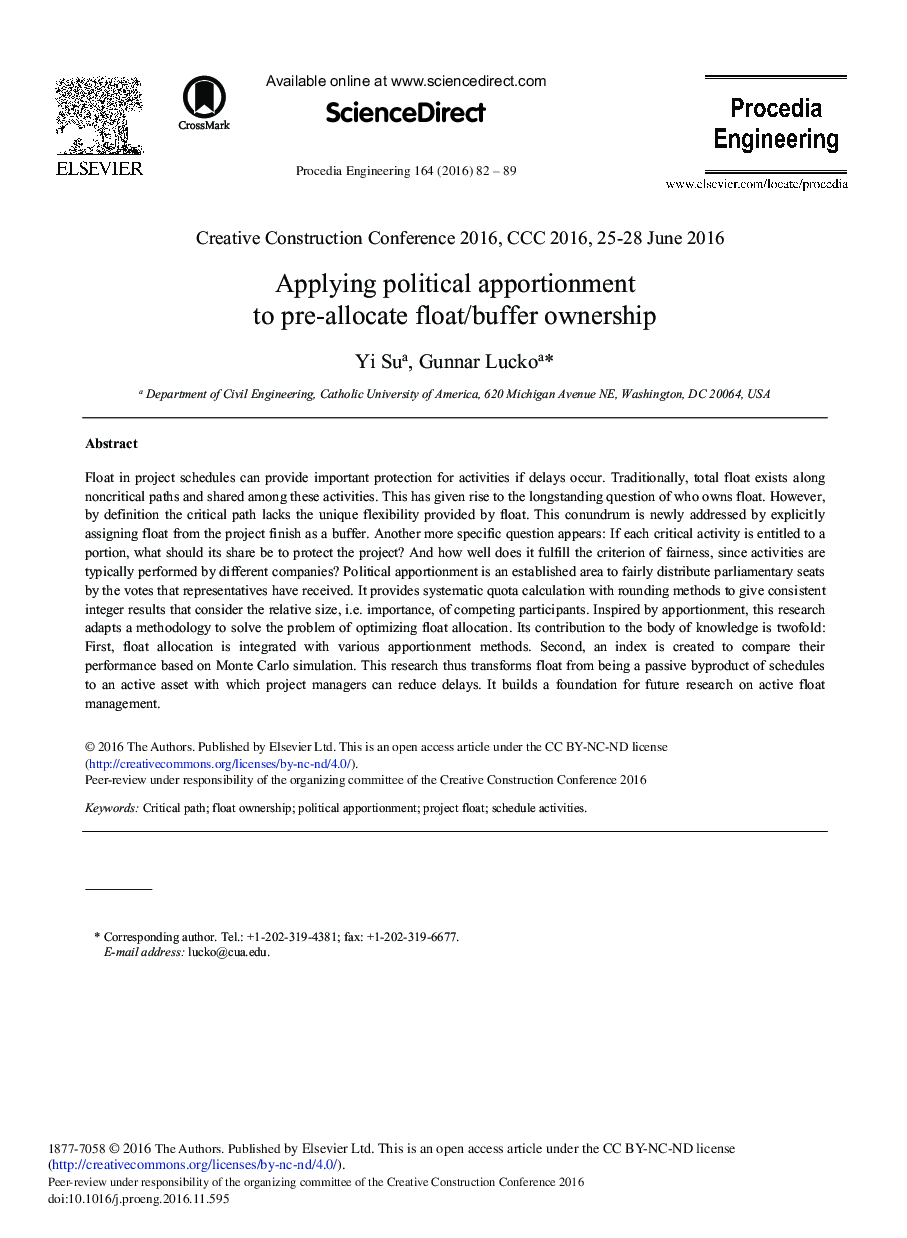| Article ID | Journal | Published Year | Pages | File Type |
|---|---|---|---|---|
| 5029458 | Procedia Engineering | 2016 | 8 Pages |
Abstract
Float in project schedules can provide important protection for activities if delays occur. Traditionally, total float exists along noncritical paths and shared among these activities. This has given rise to the longstanding question of who owns float. However, by definition the critical path lacks the unique flexibility provided by float. This conundrum is newly addressed by explicitly assigning float from the project finish as a buffer. Another more specific question appears: If each critical activity is entitled to a portion, what should its share be to protect the project? And how well does it fulfill the criterion of fairness, since activities are typically performed by different companies? Political apportionment is an established area to fairly distribute parliamentary seats by the votes that representatives have received. It provides systematic quota calculation with rounding methods to give consistent integer results that consider the relative size, i.e. importance, of competing participants. Inspired by apportionment, this research adapts a methodology to solve the problem of optimizing float allocation. Its contribution to the body of knowledge is twofold: First, float allocation is integrated with various apportionment methods. Second, an index is created to compare their performance based on Monte Carlo simulation. This research thus transforms float from being a passive byproduct of schedules to an active asset with which project managers can reduce delays. It builds a foundation for future research on active float management.
Keywords
Related Topics
Physical Sciences and Engineering
Engineering
Engineering (General)
Authors
Yi Su, Gunnar Lucko,
